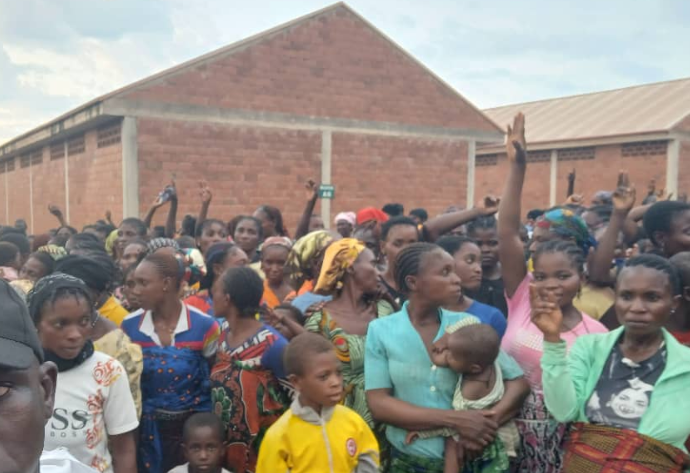Wale Edun: Africa Must Mobilise Its Own Capital to Drive Economic Transformation
Nigeria’s Minister of Finance and Coordinating Minister of the Economy, Wale Edun, has issued a clarion call for Africa’s sovereign wealth funds to take centre stage in transforming the continent’s economies, urging them to move beyond their traditional roles and become key drivers of development.
Speaking at the African Sovereign Investment Forum (ASIF) hosted by the Nigerian Sovereign Investment Authority (NSIA) in Abuja, Edun declared:
“Africa stands at a pivotal moment, facing profound challenges and unmatched opportunities. In this decisive period, sovereign wealth funds must move beyond the traditional roles of stabilising and wealth preservation to becoming active instruments for economic transformation.”
According to Edun, the critical question before the continent is how to leverage Africa’s sovereign capital to crowd in international finance, forge impactful partnerships, and build a sustainable future for its people.
“At the heart of the answer lies collaboration — just the type that we have here,” he said. “African sovereign wealth funds are uniquely positioned to de-risk large-scale projects, signal national commitment and align local development needs with global objectives. And to fully realise this role, we must position our funds not just as investors, but as co-developers.”
Edun emphasised the need for capital mobilisation at scale, regional and continental collaboration, and human capital and policy alignment as the three key pillars for Africa’s future prosperity.
“You can’t do anything without capital — capital is the key,” he said. “We must reach scale in mobilising blended capital platforms that can absorb institutional funding from across the world.”
He stressed the need to create the right environment for private sector participation:
“One of the particular aspects we must succeed in is convincing even ourselves, our authorities, that the private sector is where the real money is. And if you are going to attract private sector investors, then you have to meet their terms. You have to have the philosophical mindset that makes conditions amenable for the private sector.”
Praising Nigeria’s own sovereign wealth institution, Edun said:
“I’m very proud of our own Nigerian Sovereign Investment Authority. It has played a crucial role in capital mobilisation, positioning itself as a leading capital provider and a trusted gateway for global investors seeking high-impact opportunities in Nigeria and across Africa.”
Praising Nigeria’s innovative approach to development finance, Edun highlighted several groundbreaking projects spearheaded or supported by the Nigerian Sovereign Investment Authority (NSIA). These include the Green Guarantee Company, the world’s first climate-focused guarantee institution, co-founded with the Green Climate Fund, FCDO, and USAID, which has already unlocked about $1 billion in guarantees for climate-related projects. He also pointed to the Chapel Hill Denham Nigerian Infrastructure Debt Fund, Nigeria’s first and largest infrastructure debt fund, which mobilises long-term capital from institutional investors to drive critical infrastructure development.
In addition, Edun cited collaborative initiatives such as the World Bank’s 300 Initiative, developed alongside Africa50, the International Solar Alliance, and the United Nations Sustainable Energy for All, which aim to direct substantial capital into underserved communities through distributed renewable energy platforms.
These projects, he noted, are also being supported by institutions like Afreximbank, FEDA, and the Development Bank of Nigeria, all working to crowd in regional, continental, and global financing for high-impact development across Africa.
“These are the wins, these are the initiatives that are underway,” he said. “AfriExim Bank is involved, FEDA is involved, and the Development Bank continues to lead the way in crowding in regional, continental, and global finance.”
Referencing past efforts and current momentum, Edun warned against repeating history’s mistakes:
“We all know our founding fathers at independence had a vision. They moved from politics to focus on the economy. But it stalled — that’s the word I’ll use. In Nigeria, that industrialisation had stopped. But today, we are about to have 1.2 million barrels per day of crude refining capacity. We again have petrochemical complexes producing raw materials for the chemicals, paints, textiles, rubber and building materials industries, and of course fertiliser for agriculture.”
“This is the road to industrialisation,” he added, “the road to value added domestically that will make building factories and investing in Nigerian and African production attractive — not just to local producers, but also to the rest of Africa.”
Edun also pointed to Nigeria’s groundbreaking issuance of a US dollar-denominated domestic bond in 2023 as a model of intra-African resource mobilisation:
“We did it using Nigerian infrastructure — Nigerian credit rating agencies, custodians, registrars. That is charity beginning at home. And we must make sure it is not a one-off but something we build on.”
He revealed that Angola’s Sovereign Wealth Fund expressed interest in participating in that bond — a sign, he said, of the future:
“Funds raised by one African nation, supported by others across the continent. That’s the future.”
Referencing Kenyan pan-Africanist Prof. P.L.O. Lumumba, Edun endorsed the call for African solutions funded by African resources:
“Professor Lumumba spoke about Afribonds and the need to mobilise our own resources. In a transactional world that is narrowing, the focus of Africa on regional and continental transactions is becoming even more acute.”
In closing, Edun urged African leaders, institutions, and investors to seize the moment:
“The world is watching Africa, not just for its potential, but for its readiness — its capacity to implement, and its decision to finally move ahead. Sovereign wealth funds are central to our preparedness, to our readiness. And by acting boldly, transparently and strategically, we can position Africa as a destination for capital.”
“Rather than wait, together we can shape a developmental narrative that is driven from within and financed in partnership with the world. Let us rise to this difficult task, with our African sovereign wealth funds leading the way,” he concluded.
Boluwatife Enome
Follow us on:










